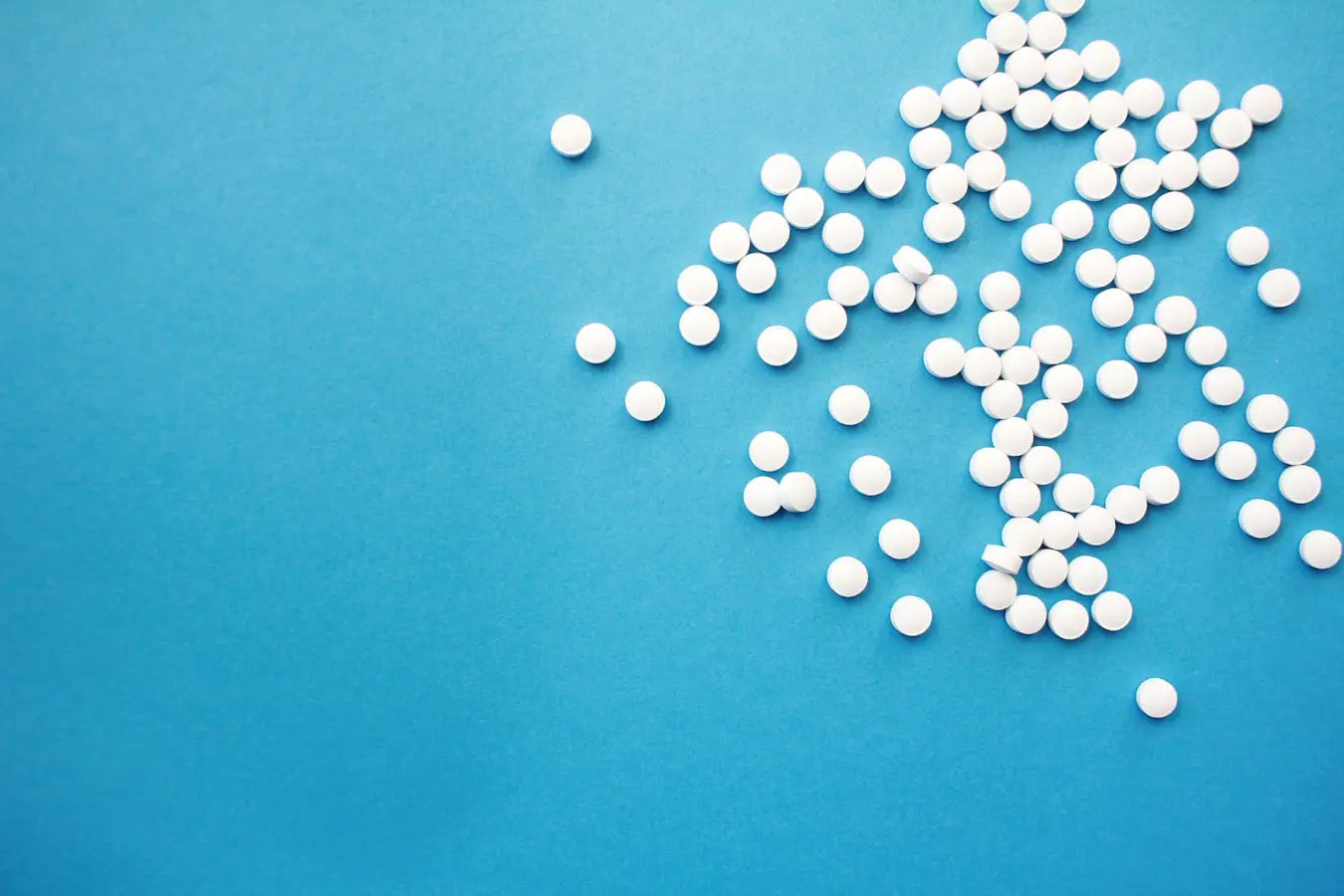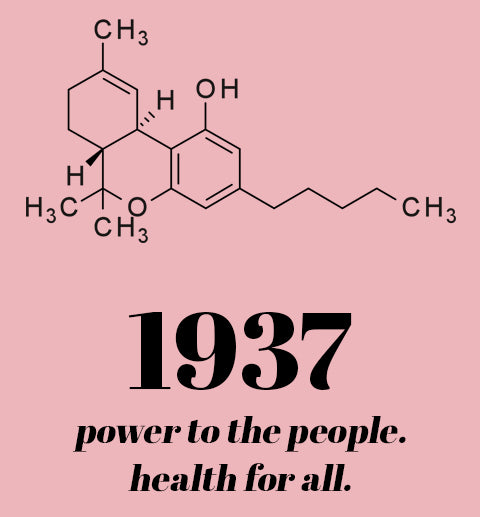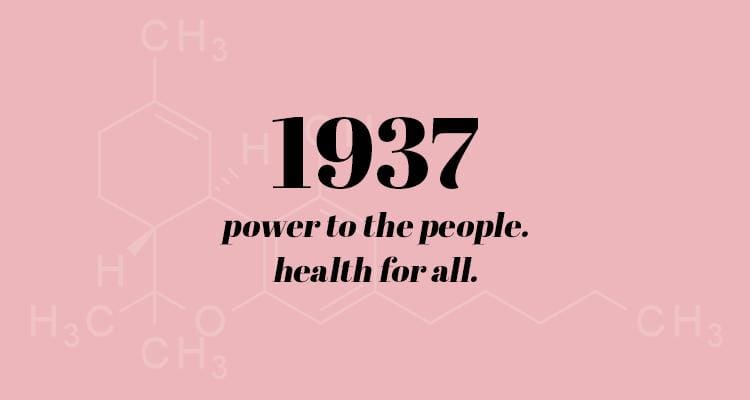Can CBD Help Fight Opioid Addiction?

The opioid epidemic is complex--both from a physiological and a socio-political perspective. These drugs are insanely powerful, and when they first started getting prescribed, people didn’t understand the extent of that power. It can have long-lasting physical and psychological effects, and we must not abandon those suffering from them. We won’t pretend that CBD will miraculously cure people of opioid addictions, but it may provide a tool to help people overcome some of the hurdles.

What Are Opioids?
Opioids are essentially pain-killers. Opium, the drug that many opioids are derived from, is a depressant that has been used for thousands of years to relieve pain, help people sleep, and was sometimes used recreationally. Its use has even been traced back to 2100 BC where ancient Sumerians utilized the sap from the Opium Poppy flower. They called the flower hul gil which means “joy plant.”
As its use spread across the world, over time the sap from the poppy flower was used to create many different opiates, from morphine and laudanum to methadone and heroin. Some of the more familiar opiates doctors prescribe are Vicodin, Oxycontin, and Percocet.
They work by attaching to one or more of the four opiate brain receptors. Once those receptors are stimulated, they reduce pain, depress respiration, and promote sleepiness and euphoria. They also slow down the digestive system which can end up leading to constipation.
When used under strict management from a doctor, and for a short period, these drugs can be a safe option to combat moderate to severe pain. However, several factors cause it to be highly addictive and life-threatening.
How Addictive Are Opioids?
Very addictive. Someone could be using them exactly as their doctor prescribed and still become dependent on them. Plus, because they interact with so many other substances, the line between a safe opioid dose and an overdose is incredibly thin.
Opioids can actually “rewire” our brains. Normally, when we’re engaging in pleasurable activities (laughing, eating, sex, etc.) the brain releases neurotransmitters that bind to particular receptors. When that happens, chemicals are released that elevate our mood and decrease our perception of pain. Opioids work much the same way, but their effects are much more intense.
Opioids are converted into morphine by enzymes in the brain, so they can easily bind to those same brain receptors. This floods the brain with massive amounts of dopamine which is why opioids reduce pain and induce euphoria. But the dopamine levels are much higher than what the body could ever naturally produce on its own, and over time the brain develops a tolerance and requires more opioids to create the same rush.
Once someone has developed a tolerance, they’ve technically become addicted already. Their brains need opioids to normalize their dopamine levels. One rehab center even says, “Long-term use of opioids causes changes to the prefrontal cortex and medial temporal lobe of the brain. These areas control and regulate long-term memory, decision-making, thought processes and social behaviors.”
Withdrawal symptoms can vary due to the type of opioid used, the duration of use, and dosage. But as quickly as twenty-four hours after their last dose, someone may begin to experience:
- Vomiting
- Tremors
- Nausea
- Fluctuations in Blood Pressure
- Constricted pupils
- Agitation
- Diarrhea
- Anxiety
- Stomach aches
- Muscle spasms
- Abdominal cramps
- Insomnia
- Runny nose
- Sweating
There are different stages of withdrawals, but post-acute withdrawal symptoms can sometimes last years after opioid use is stopped. Plus, the pain they were experiencing before opioid use will return--sometimes even worse than it was originally. When opioid withdrawals are too severe they can even become life-threatening.

How Did Opioids Become an Epidemic?
While opioids have been a problem for decades, the immense increase in opioid-related deaths was particularly noted in 1991. These drugs were being prescribed more and more as doctors were reassured by pharmaceutical companies that addiction risks were low. Where these drugs were liberally prescribed were some of the first places to experience opioid abuse.
Around 2010 there was a huge increase in heroin-related deaths. This was due, in part, because the medical community began prescribing opioids less and less. With prescription opioids harder to come by, many who’d become addicted turned to heroin because it was inexpensive, also a potent pain-killer, and widely available. For those who were addicted to opiates, the fact that it was illegal was of little consequence at that point.
The rise in heroin use wasn’t specific to any particular demographic either. Men and women of all ages and socioeconomic backgrounds were affected by this, but roughly eighty percent of heroin users, “admitted to misusing prescription opioids before turning to heroin.”
Between 2002 and 2013 heroin-related overdoses rose 286%, but with the introduction of synthetic opioids, like fentanyl, things got worse. According to the CDC, fentanyl is 50 times more potent than heroin and 100 times more potent than morphine. Legal fentanyl is heavily monitored and prescribed primarily for severe pain often related to cancer and end-of-life care. However, non-pharmaceutical (illegal) fentanyl poses extra risks for opioid addicts because they may, unknowingly, be using heroin laced with fentanyl.
Comprehensive guidelines for prescribing opioids were created to minimize the risks, but a lot of these changes have been indirectly opposed by the pharmaceutical industry via lobbying and advocacy groups.
According to a report from the U.S. Senate Homeland Security & Governmental Affairs Committee, financial ties exist between opioid manufacturers, medical professional societies, and advocacy groups that create massive conflicts of interest. Poison.org even says, “Researchers from two universities found that the opposition to the CDC guidelines was significantly more common among organizations that received funding from opioid manufacturers.”
We all know that opioids are highly addictive and damaging, but the manufacturers don’t want to lose money because of stricter prescription regulations. Regardless of how or why the opioid epidemic started though, people are suffering.
How Can CBD Help Opioid Addiction?
CBD (cannabidiol) is a non-psychoactive cannabinoid harvested from industrial hemp. When we use CBD, it binds to receptors in our ECS (endocannabinoid system) and gives that system a boost in functioning power. The purpose of the ECS is to act as a series of checks-and-balances on other systems in the body. The extent of its mechanisms is still being studied, but right now there’s research indicating it helps to maintain homeostasis in many different bodily systems.
When it comes to using CBD as a possible treatment for opioid abuse, it may prove helpful on two fronts: pain management and cravings & anxiety.
CBD for Pain Management
The whole reason we’re in this mess is that we don’t like pain. That’s why people resort to opioids and why they keep using them even when they know they’re addicted--because with withdrawals all of that pain comes back and more. But with the legalization of CBD in all fifty states, many people are using CBD to manage mild, chronic, and some severe pain.
Psychiatric Times has said, “In animal models, CBD applied on the skin can help lower pain and inflammation due to arthritis. Another study by Li and colleagues confirmed that CBD inhibits inflammatory and neuropathic pain, two of the most difficult types of chronic pain to treat.”
In November of 2019, another study evaluating the use of CBD on chronic pain with opioid use found that, “Over half of chronic pain patients (53%) reduced or eliminated their opioids within 8 weeks after adding CBD-rich hemp extract to their regimens….CBD could significantly reduce opioid use and improve chronic pain and sleep quality among patients who are currently using opioids for pain management.”
What we don’t know is what the appropriate dose of CBD would be. Everyone responds to substances differently, so more research is needed to come to a definitive conclusion.

CBD for Opioid Cravings and Anxiety
Once the brain is “rewired” and used to the massive rush of dopamine that opioids provide, it’s painful to adjust to life without that. When the brain is dopamine deficient, people may experience:
- Fatigue
- Lack of focus
- Lack of motivation
- Depression
- Mood swings
- Hopelessness
- Low self-esteem
- Anxiety
- Suicidal thoughts
- Thoughts of self-harm
- Low sex drive
- Delusions
- Hallucinations
All of this can cause people to crave the opioids that used to give them that rush of dopamine. But CBD may be able to help with both anxiety and opioid cravings.
In one study, forty-two people with heroin use problems between the ages of twenty-one and sixty-five were administered a controlled amount of CBD over four weeks. During the study, they were required to abstain from heroin use, and their cravings and anxiety were monitored. Compared to the placebo group, those who took CBD had significantly fewer cravings and anxiety and the effects lasted up to a week after the first dose. Also, “CBD reduced the environmental cue-induced physiological measures of increased heart rate and salivary cortisol levels. Importantly, researchers found no significant effects on cognition and no serious side effects.”
NBC News even published an article detailing the importance of that same study. Yasmin Hurd, the lead author of the study, said in one interview, “The specific effects of CBD on cue-induced drug craving and anxiety are particularly important in the development of addiction therapeutics because environmental cues are one of the strongest triggers for relapse and continued drug use.”
Making sure that people have tools and systems in place to help them combat cravings and anxiety will ultimately help people overcome opioid addiction.
Disclaimer
We are not doctors and would never recommend that anyone deviate from their doctor's orders without consulting with them first. Opioids are incredibly powerful and quitting them cold turkey can be dangerous. If you believe it’s time to start living opioid-free, then consult with a healthcare professional before making any changes. Also...
If you, or anyone you know, are abusing these drugs, you are not alone and you still have options.
We believe that CBD may be a tool to help people in recovery, but joining a community that knows what you’re going through can be immensely helpful. Please reach out to a nearby Recovery Center today or join an online recovery community.

Conclusion
People suffering from opioid addictions need our help. Often they did everything they were told to, but because of the intensity of these drugs, they were helpless in the face of their potent effects. We know that more research is needed so we can discover the different ways that CBD interacts with our bodies, but the information we have thus far is so promising.
We said it before, but we want to re-emphasize how important it is that you consult with a doctor if you are struggling with an opioid problem. We seriously believe that CBD has massive therapeutic potential, but your doctor will be able to tell you if it’ll interact with any medications or if you have any underlying conditions that CBD may exacerbate.
It’s also important to make sure that any CBD you’re using is high-quality. The effects of THC (tetrahydrocannabinol) with opioid use is complex, and the psychoactive effects of that particular cannabinoid can sometimes make anxiety worse. To be safe, always check the Certificate of Analysis of any CBD product, and if you have questions about our products always contact us with questions.
Remember, everyone makes mistakes. Sometimes it’s taking that one extra dose that tips you over into addiction, sometimes it’s overprescribing something because you thought it was safe. It doesn’t matter who’s fault any of this is, it just matters that we continue to work towards a solution.
Let us know in the comments if CBD has helped you, or someone you know, overcome an opioid problem, and don’t forget to tag us the next time you post a pic of your 1937 Hemp products.

Hannah Walker is a mostly-retired University English instructor who spends her time freelance copywriting. When not doing that, she’s writing articles related to CBD, skincare, and/or media. With an MA in English-Creative Writing she’s probably working on a creative piece at this very moment. See more about Hannah’s work on her website or on Instagram.

